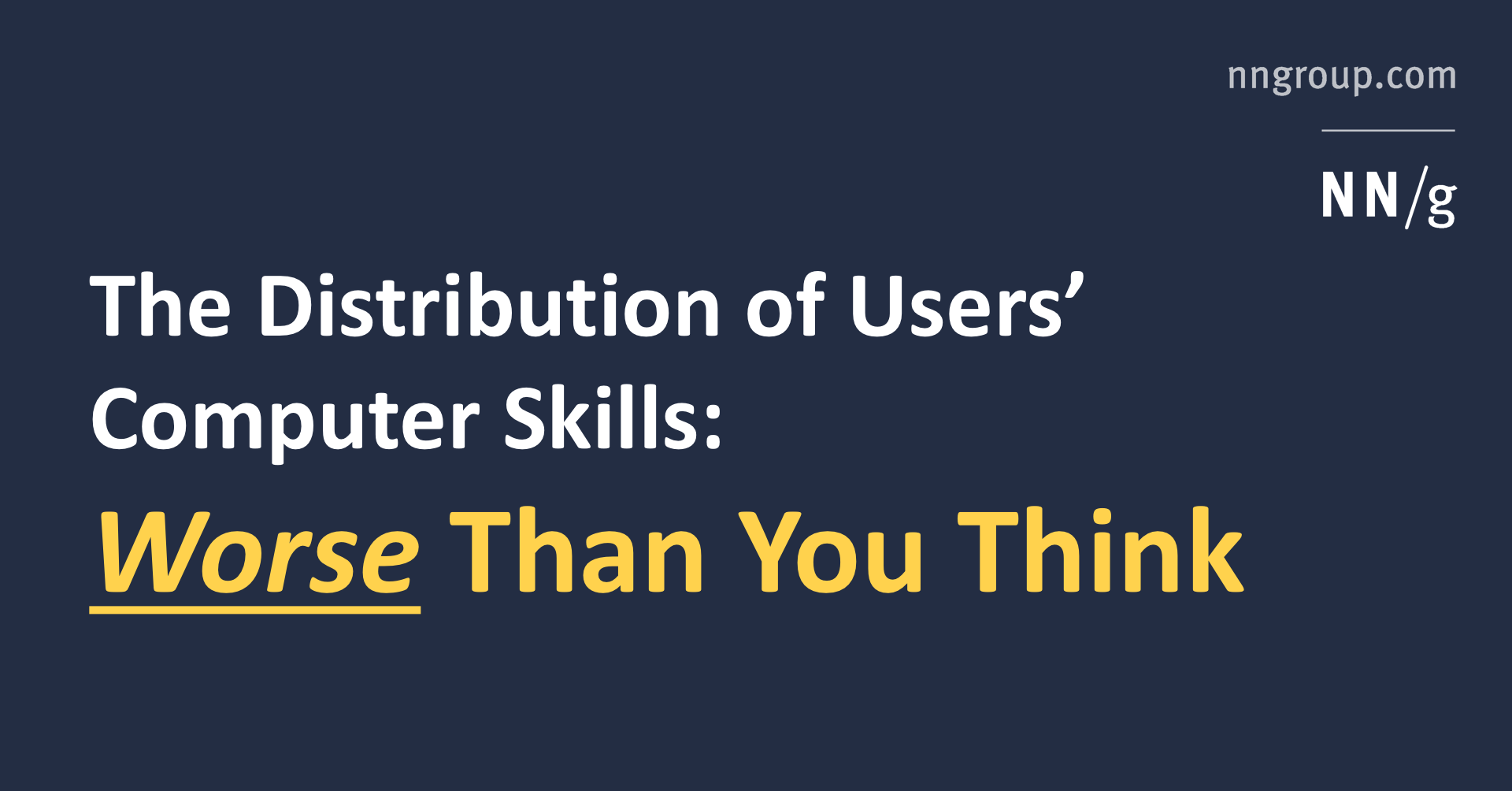Friends of my generation who weren’t in families with a computer they could play around on have ended up far less comfortable with tech. I would love to see data like this broken out by class background.
I suspect companies have historically been overvalued based on what a techie user could get out of them rather than their intended user. Does this happen with phone apps too?
Are there modes of instruction that help people advance in these skills? They seem like they ought to have a lot of impact, and yet I don’t think I see training around me.
How does good/bad UI design impact this?
When watching non techy friends use phones and computers,I just see how cluttered and non consistent GUIs really are. And changing with each version.
I hate uodating because something will change. Worst offender by far is OsmAnd, great application with awful UI, but even worser is they change it all the time and I can not even learn it and get used to it after years of use.
Most aplications, desktop, mobile and web havr a lot of options 90% of users don’t want to see or use. Solution might be to make simplified and complex UI for each software and mke simplified and consistent UI as default and easy switch to change it to complex and custom.
I don’t think this is user fault, I do think this is just bad decision making on all levels of application design.
After helping them with, to me, unknown applucation people usualy ask me “How did you know where to find that option?” and my answer is “I would put it there.” and I am certainly not a person to male any kind of decision on UI side of things.
tl;dr: UI bad.
tl;dr: UI bad.
I’d even go so far to say: UX bad. The whole experience of browsing the web and using applications is so much worse than ten years ago because you have thousands of functions crammed into a single application (see also: “the Unix way”) and there are help pages for how to use the assistant for using a function. This is the Inception (2010) of bad UI and UX decisions.
I’m sure class (or more generally, growing up with computers) matters a lot, but the distribution described in this article pretty much looks like an IQ distribution - this doesn’t mean its conclusions are wrong (two thirds of the population can’t use your design) but that it might be futile to try to teach advanced computer skills to a large proportion of society.
So even given
- people argue about exactly what mediates the impact of poverty (esp. childhood poverty) on IQ, but it’s, like, there, and
- studies broadly show education has an impact on IQ
instead you’re projecting the idea that IQ accurately tracks something meaningful and immutable onto “advanced” tech skills (which, let’s be clear, in this context are explicitly not Ph.D. stuff) because of… the shape of a distribution?

Fair enough. Re-reading that comment, it isn’t very clear what I meant and it’s also true that the fact that something looks like a bell curve doesn’t mean at all that it’s related to IQ.
What I was trying to say is that the tasks given to the participants were at least as much about reasoning skills as about the computer skills and it is hard to separate the two.
I alway thought (was taught) that IQ is fixed and cannot really be changed so I found the study you linked especially interesting. If this is indeed broadly proven, it would change my entire worldview! Where can I read more about this?




